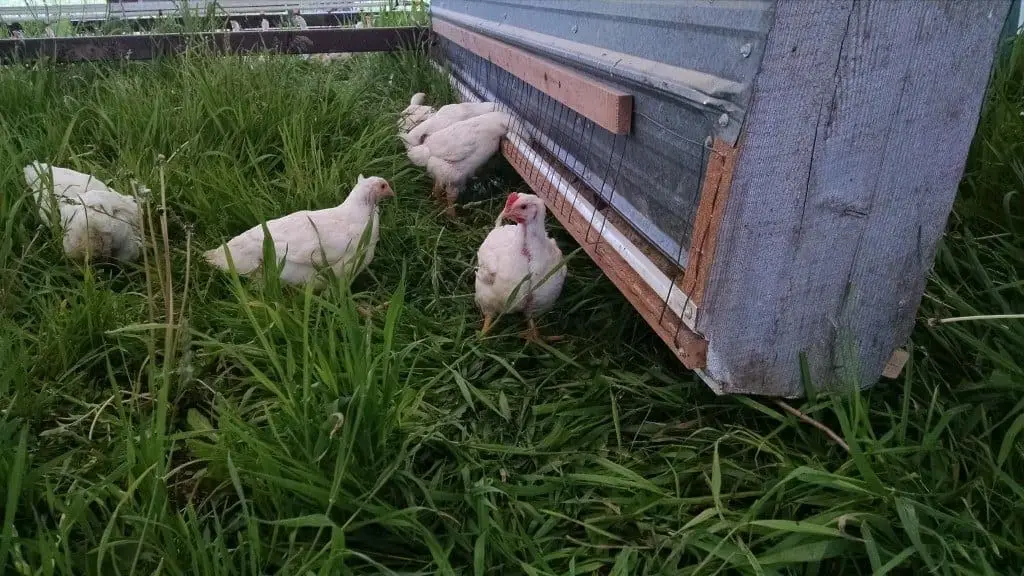Someone recently asked me what we thought of Cornish Cross broiler chickens. The answer is complicated (the kids would point out that all my answers are over-complicated) and I won’t try to replicate the exchange or the subsequent conversations we’ve had at home on the topic. I will agree that as a whole Cornish Crosses are less hardy than other chickens and that they can be more disaster prone, but I still stick up for them. Like all agriculture, whether you are growing garlic or Gala apples or Cornish Cross chickens, you have to realize that these are all organisms that are the results of centuries of human selection for traits that are useful to us and that these selections often go against the pressures of natural selection. These traits make the plant or animal dependent on us. Garlic has given up its ability to reproduce on its own. Apples are notoriously tricky to breed true and require trimming and blossom pinching to ensure annual crops. Cornish Cross need lots of attention.
So sure, you can profile Cornish Cross as lazy, shiftless, and prone to sudden death. But that’s only the case when they aren’t understood and accommodated. Our Cornish Cross chickens are vibrant and zippy. They chase bugs, eat grass, and generally do a good job being chickens.

Over the years we’ve learned (and of course all lessons are hard won by trial and error) that there are a few important management decisions requisite for healthy broiler chickens.
- Nutrition matters. Since the chickens are growing rapidly, we need to pay careful attention to minerals. We like Fertrell and Crystal Creek poultry minerals better than other brands we’ve tried. Changing feed suppliers can make a huge difference in the health of the flock.
- Fresh air is critical. Attention to air quality in the brooder helps the chickens throughout the rest of their lives as most health issues seem to start with respiratory problems while they are young. And once they are older, pasture housing is better with any design that maximizes air flow.
- Watch for cold temperatures. Cornish Cross chickens can handle the hottest of our Upstate NY hot weather (arguably not very hot, since it has never been above 95 in any of the last seven summers we’ve been here) if they can get out of the direct sun, but they don’t do well with cold. With that in mind, we have found that we shouldn’t start chicks in the brooder before mid-April and we shouldn’t keep them out on pasture after late October. Other regions will have other patterns.
